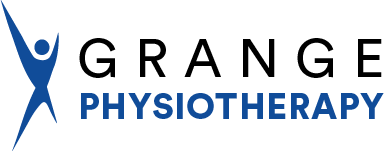Frozen shoulder is an ambiguous term, often describing the shoulder when, for no apparent reason, there is pain and a loss of motion. The literature states that it is probably due to a virus, but can also arise through trauma or inactivity. Gleno-humeral capsulitis or frozen shoulder is thought to develop as a result. This means inflammation of the joint capsule. There is the onset of soreness, which can severely affect particular shoulder activities such as reaching forward and overhead activities.
MORE DETAILED INFORMATION:
Classically there are 4 stages of frozen shoulder:
1) Early inflammation with onset of pain but full range
2) More inflammation with the capsule becoming swollen and thicker. Range in the shoulder reduces over a 1-2 month period. Rotator cuff involvement can become apparent here, secondary to the frozen shoulder.
3) Pain starts to reduce as inflammation settles down – however swelling in the capsule has created scarring and the restriction of motion is still present.
4) Gradual improvement in range as the scarring stretches. Most patients will get full, or nearly full, return of range.
A frozen shoulder can last anywhere between 3 months to 2 years.
In diagnosis, the 4 stages of frozen shoulder are hard to distinguish, particularly the difference between “frozen shoulder” and “rotator cuff involvement”. There is often a combination of both. It is not uncommon to see “ rotator-cuff repairs” presenting with “frozen shoulder” symptoms. This can slow down the recovery. Rotations, particularly external rotation, will often be the first movement irritated by an inflamed capsule. This irritated movement may help to distinguish it from rotator cuff symptoms where abduction and flexion are more commonly restricted.
Management of these types of conditions is best treated initially by rest and corticosteroid injections may be of some benefit. The sub-acromial space can also be injected if there is impingement pain. Once the inflammatory cycle has resolved, gentle physiotherapy should be introduced for mobilization, with the implementation of a gradual stretching program. Current research seems to suggest that more aggressive physiotherapy is beneficial if tolerated, and will speeds recovery. Some thinking suggests that passive controlled stretches, in the initial stages of this condition, may help to control pain.
Frozen shoulder is an inflammatory condition, which should resolve in the long term. Frozen shoulders should be assessed by your physiotherapist who can treat these complicated shoulder injuries.


